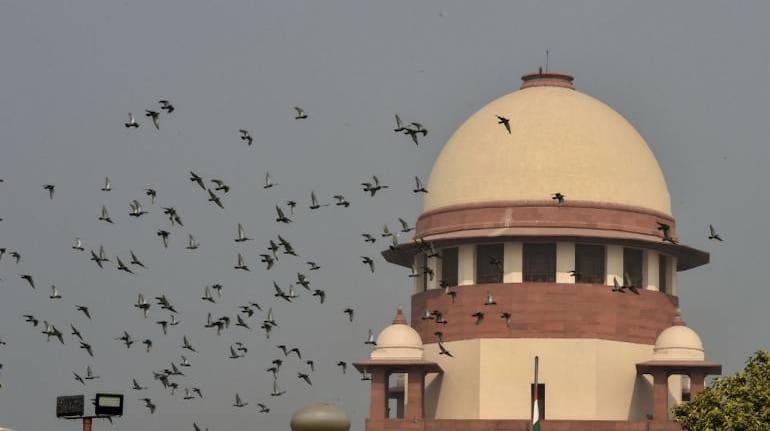
On May 18, the Supreme Court invoked the extraordinary jurisdiction conferred on it under Article 142 of the Constitution of India to direct the release of AG Perarivalan, one of the convicts in the Rajiv Gandhi assassination case.
Article 142 essentially provides that the country’s apex court can pass such orders or decrees as it deems fit in order to do complete justice in cases before it. It is not always that the Supreme Court has invoked this article but AG Perarivalan’s case was one such time that the apex court found the need for exercising its extraordinary powers.
Perarivalan was arrested in June 1991, about a month after the then Prime Minister Rajiv Gandhi was assassinated in a suicide bomb attack in Tamil Nadu’s Sriperumbudur. In 1998, along with other accused persons in the case, Perarivalan was convicted and awarded a death sentence. This death sentence for Perarivalan was commuted to a life term by the Supreme Court in 2014.
Aged 19 at the time of his arrest, Perarivalan was found guilty for his role in the assassination. He was responsible for procuring batteries that were used in the bomb used for the attack.
Then why has the Supreme Court used Article 142 to do complete justice and directed for Perivalan to be released? Moneycontrol explains.
Inordinate delay
It was in 2015 that Perarivalan had moved his plea for an early release. Per procedure and protocol, the council of ministers of the state government of Tamil Nadu considered his plea, took into consideration various factors and recommended clemency for Perarivalan in 2018. This recommendation was sent to the governor for a decision.
The Supreme Court in its judgment highlighted that it was at this stage that Perarivalan’s plea faced inordinate delay.
“Given petitions under Article 161 pertain to the liberty of individuals, inexplicable delay not on account of the prisoner is inexcusable as it contributes to adverse physical conditions and mental distress faced by a prisoner…” said the Supreme Court.
During the long course of hearing on Perarivalan’s case before the Supreme Court, the forum was informed in 2021 that the Governor of Tamil Nadu had forwarded the plea for remission by Perarivalan filed under Article 161 to the President of India. This was accompanied by the recommendations of the state government’s cabinet.
For over two years after the cabinet’s recommendations, the Governor sat on the decision. The plea was forwarded to the President only after inquiries were made by the court, the judgment notes.
The decision of the governor to forward the remission plea to the President, particularly after such a long delay after a recommendation for release was made by the cabinet, is without any constitutional backing. The Governor ought to have acted on the aid and advice of the cabinet, the court said, and added that “the constitutional conclusion is that the Governor is but a shorthand expression for the State Government”.
The precedents laid down by the Supreme Court in a number of cases make it clear that the recommendation of the cabinet in cases for remission are binding on the Governor.
“Non-exercise of the power under Article 161 or inexplicable delay in exercise of such power not attributable to the prisoner is subject to judicial review by this Court, especially when the State Cabinet has taken a decision to release the prisoner and made recommendations to the Governor to this effect,” the bench added.
The Union government’s fervent argument that it is only the President that has the power to grant pardon also stood rejected by the top court.
Good conduct
Earlier this year, the apex court had granted bail to Perarivalan keeping in view his prolonged incarceration of over three decades, his good conduct while in prison, as well as his ill health. During his time in prison, Perarivalan spent 29 years in solitary confinement while 16 years of his total time served was as a death-row convict before his sentence was commuted to a life term.
The court noted that there had been no complaints pertaining to Perarivalan’s conduct during his incarceration nor did any adverse inputs come against him on the occasions he was granted parole.
“Apart from his good behaviour in jail, the Appellant has also educated himself and successfully completed his +2 exams, an undergraduate degree, a postgraduate degree, a diploma and eight certification courses,” the court noted.
Owing to the “exceptional facts and circumstances” of this case, the court said that remanding the remission plea to the governor for reconsideration would not be appropriate.
As such, the Supreme Court invoked its jurisdiction under Article 142 and held that Perarivalan will be deemed to have served his full term and must be set at liberty forthwith.
Discover the latest Business News, Sensex, and Nifty updates. Obtain Personal Finance insights, tax queries, and expert opinions on Moneycontrol or download the Moneycontrol App to stay updated!